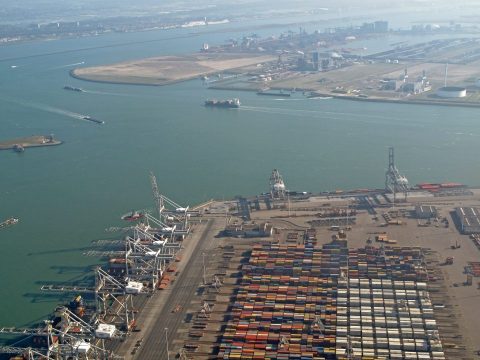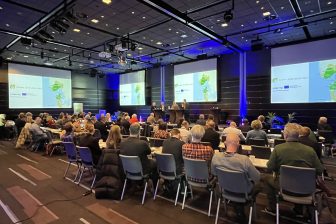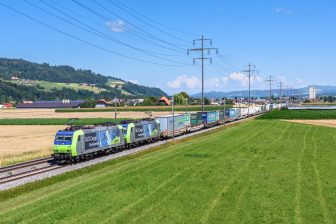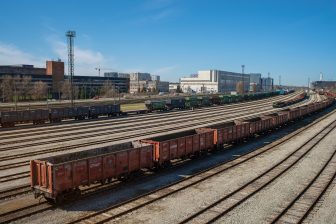
Rotterdam online portal answers demand
A round-the-clock online booking portal will enable rail freight operators moving goods around and in and out of Rotterdam to track movements in real time. The TEUbooker service matches customers’ demands for storage movement between terminals with spare container space.
Just a few clicks of the mouse will enable users to book containers on existing rail, barge and road movements in the Maasvlakte area of the port, and follow their goods’ progress through a personalised dashboard. Many inland trains and ships which move between terminals have space for containers, and what the new system does is use some specific algorithms – essentially a set of pre-programmed instructions – to look at capacity and schedules and make a direct match between those who need storage and those who have space available.
Container logistics
Frans Swarttouw, Managing Director of TEUbooker, described the launch as heralding a ‘a new phase in the container logistics sector’. “The first bookings by terminals and shipping companies have been accomplished, and barge and rail operators have also responded enthusiastically,” he said. “The easier you make it for them (providers), the more cargo you attract to the port. Ultimately, it is all about the ease with which operators can do business with a port.”
Large amounts of freight have been transported between the port’s principal Maasvlakte and Maasvlakte II’s installations since the latter became operational in 2015. The port authority has been developing what it calls a ‘Container Exchange Route’ to connect all of the terminals using internal transportation rather, than has often been the case, public roads.
European hinterland
“These first steps in the Port of Rotterdam are a prelude to a platform in which users will be able to book transport to and from the European hinterland,” added Swarttouw. “Operators will be able to achieve greater coverage, including shippers and forwarders who still transport a great deal by road. These parties often lack the time to compile detailed information of all transportation modes – let alone the possibility to accomplish this online.”
The frequency of the Rotterdam-Bayern Express service meanwhile, which links Rotterdam with Nuremberg and Munich is being increased from five to six trains per week. The market share of the route has increased significantly in recent years, resulting in the recent launch of a new barge service to meet increased demand.
The TEUbooker website has more information.





